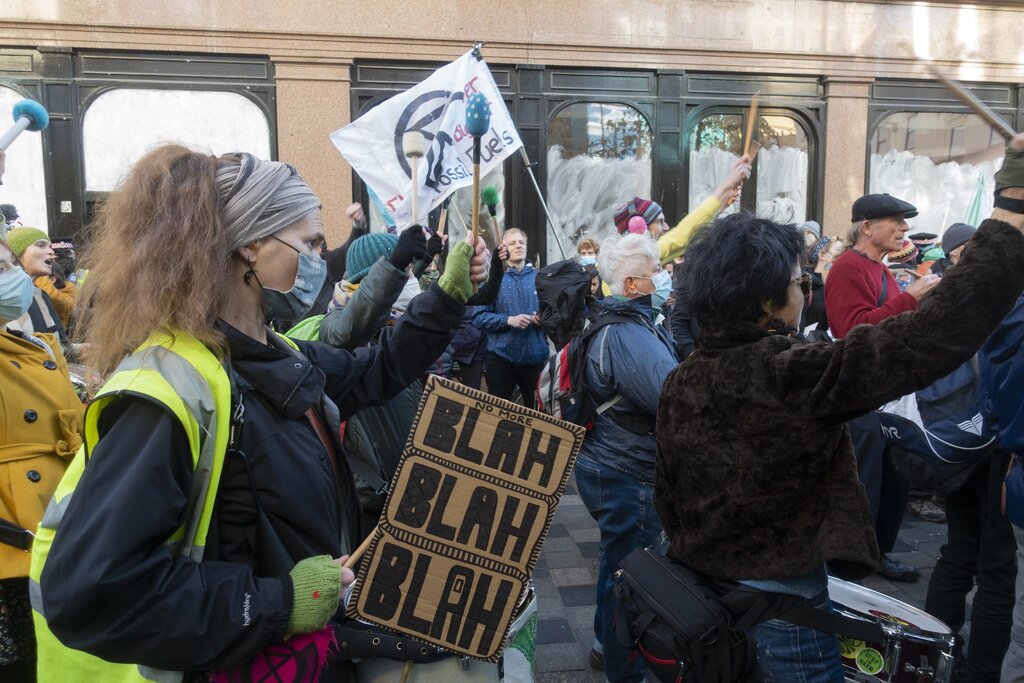Chances of meeting Paris Agreement goals and limiting global warming under 1.5C by 2030 are still highly unlikely despite new climate pledges made at the COP26 summit.
—
What is Happening?
- Experts warn chances of limiting global warming under 1.5C are “close to zero” based on the new climate commitments made at COP26.
- The gaps of emissions can be mainly attributed to US and China’s refusal to quit coal, and a relatively lax goal to reduce methane emissions.
The chances of keeping global warming under 1.5C to pre-industrial levels remain “close to zero” despite a number of updated climate pledges made at the COP26 climate conference in Glasgow.
Half way through the two-week long UN summit, a number of countries and private corporations have made renewed and more ambitious commitments to reduce greenhouse gas emissions, including India vowing to reach net zero emissions by 2070 and Nigeria for 2060. More than 40 countries also pledged to phase out coal power generation domestically, with six countries such as Indonesia and Morocco signing up to portions of the deal.
However, notably missing from the historic coal pact are the US, China and Australia, the world’s largest coal consumers. Together, they represent 72% of global emissions from coal-fired power. Without these big emitters’ commitment to quit coal, achieving the Paris Agreement climate goals are near impossible, the International Energy Agency warns.
“Without addressing this problem, the chances to reach our 1.5C target is close to zero,” Faith Birol, head of the International Energy Agency, told the Financial Times. “I hope all the countries are going to be part of a deal where they can take these early steps for early retirements or repurposing their coal plants. ”
The most recent Intergovernmental Panel on Climate Change (IPCC) report revealed that global temperatures have already risen up to 1.1C since the Industrial Revolution.
You might also like: COP26: What You Need to Know About the UN Climate Talks
The Energy Transition Commission conducted an analysis on the latest climate pledges and found similar results. Assuming maximum follow-through on all the climate pledges, they still don’t add up to keeping temperatures below 1.5C increase. Based on current goals, about 9 billion metric tons of carbon dioxide could be reduced each year by 2030. But we need to cut another 13 billion tons a year to meet the Paris climate target.
Likewise, the popular global methane pledge, which saw 105 countries agreeing to cut global methane emissions by 30% by 2030, is not enough to help curb the current rate of global warming. First, the 30% reduction goal is a collective one, not an individual goal. And secondly, the planet’s biggest methane emitters including Russia, China and India, did not sign up to the deal. The Global Methane Assessment from the United Nations Environment Programme points out that a 45% reduction in methane emissions would be needed by 2030 to be on track to meet the 1.5C goal.
While there’s still another week of negotiations to go at the COP26 summit, many climate activists including Greta Thunberg have criticised the conference for being a greenwashing festival, saying that “all those promises will be nothing but blah, blah, blah.” Without more aggressive commitments from world leaders and delegates, we are putting the future of our climate at serious risk.
Featured image by: Francis McKee/Flickr


















